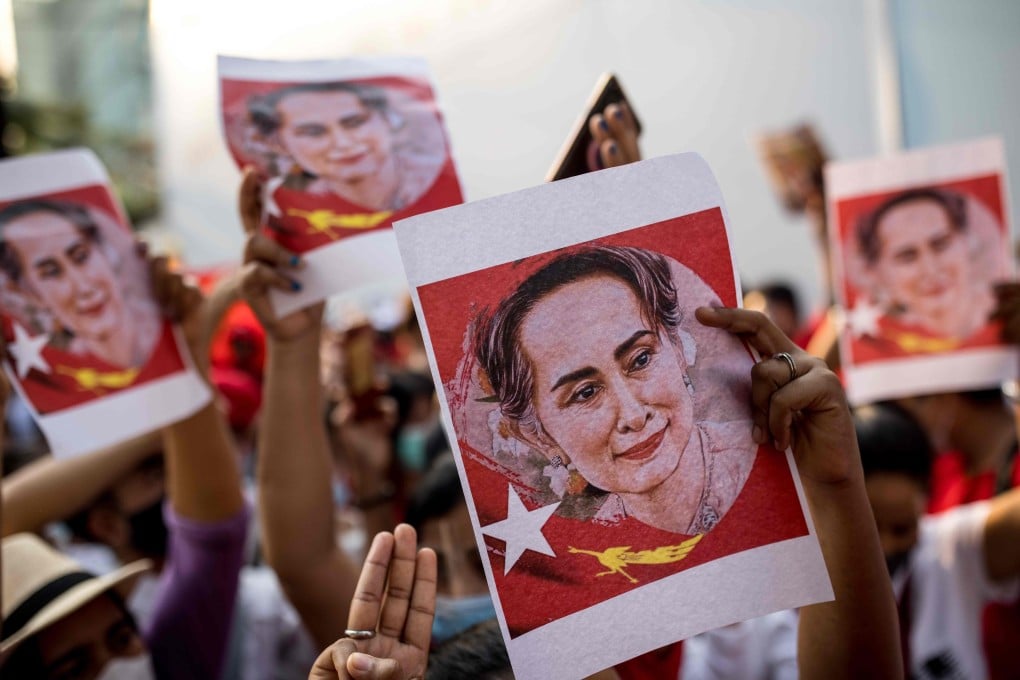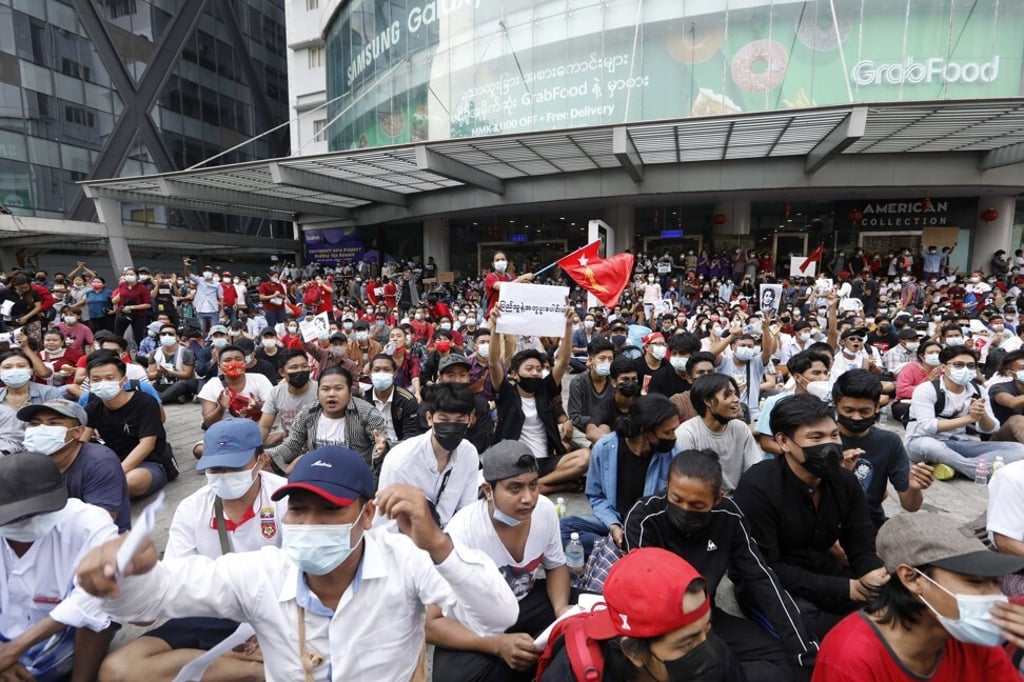‘Every day is a nightmare’: Inside Myanmar, fears and shattered dreams as military clamps down on dissent
- From decades of impoverishment to a democratic blossoming and now under junta rule, the people of Myanmar are back to square one
- Although Aung San Suu Kyi has been detained and there is no popular leader to harness the anger of the people, political resistance remains alive

With a scholarship offered by a Western charity, she completed her undergraduate degree at a top university in Hong Kong, then worked for academic institutes and NGOs focused on reforms and governance in Myanmar before completing a graduate degree in Europe, also on a scholarship.
“If the military can initiate a coup so easily, there is no hope for the country,” said Erina Oo, who requested not to be identified by her real name. “Every day I wake up to my nightmare. I have not been able to concentrate at work since February 1,” she said referring to the day the Tatmadaw took over.
It was in 2011, under the quasi-civilian Thein Sein government, that a series of political and economic reforms began. Suu Kyi’s National League of Democracy, which had begun making inroads into parliament starting with the 2012 by-election, then won the majority of seats in the 2015 general election, and achieved another landslide victory in November’s election.
Although economic liberalisation had come slowly under the Suu Kyi-led government, and the country’s human rights record was still being criticised, largely due to the treatment of the Rohingya Muslim minority, people also no longer lived with daily fear, as they had under the military dictatorship. This alone was arguably the civilian-led government’s greatest achievement.

